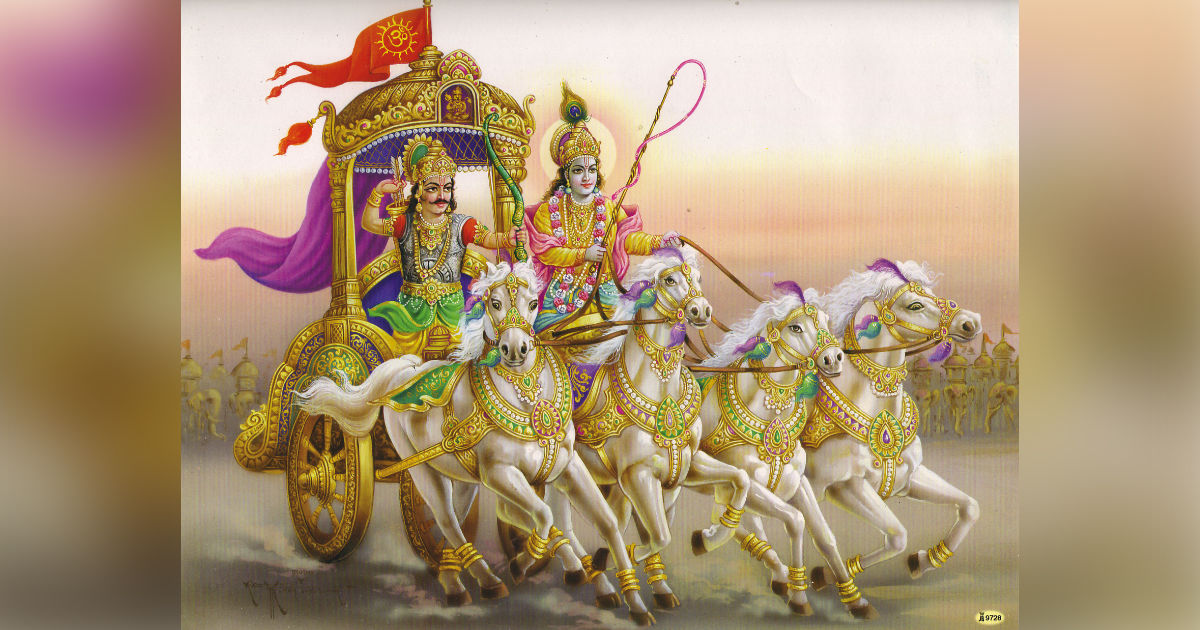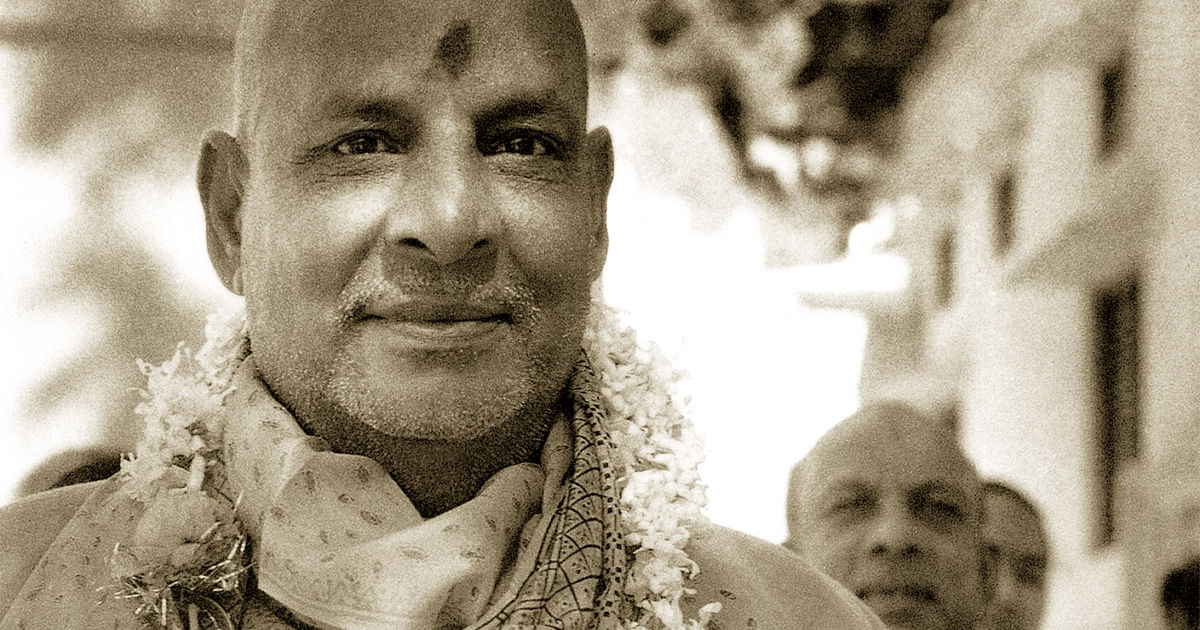Happiness according to the Bhagwad Gita is not just a fleeting emotion or a result of external factors, but a state of being that arises from spiritual connection, inner peace, contentment and living a life aligned with one’s true purpose.
Tag Archives: Gratitude
Absorb the Gita
The message of the Gita is acceptance. Whatever happens, is happening for the good and this encourages acceptance and trust in life’s flow. The Gita also emphasizes the importance of living in the present moment. It says the past is behind, learn from it. The future is ahead, prepare for it. Continue reading
Gratitude
So many of us enable and help others and then we feel that we have not been thanked. We say that person is ungrateful.
Swami Sivananda said that one should help those people, who do not even know that they have benefitted from our help. Continue reading
931 – Maya and Tamas
The world and the life created in it is subject to the influence of maya and tamas. We are all victims of maya and tamas.
What is maya?
Maya is illusion and is the powerful force which creates the cosmic illusion that the phenomena is real. The purpose of maya is to teach one the futility of illusion. To be free of maya one must develop an attitude of gratitude. Continue reading
499 – Gratitude
What do we understand about gratitude? Is it acknowledgement, appreciativeness, responsiveness, gratefulness, obligation, thankfulness or all of the above?
Our Gurus, wise men and seers say that we must be indebted to the universe and its inhabitants. However, we are enamored of the word that we use it in daily affirmations without understanding the meaning and absorbing it in our life.
How do we perform a gratitude sadhana? Continue reading
225 – Daily Spiritual Practices
In order to practice a spiritual life and enjoy the fruit of the sadhana, it must become a part of us. Easter is upon us and we associate it with the material things like gifts and chocolates. Easter is a time of new beginnings and renewal. However it is not only when Easter is approaching that we should think that we should renew ourselves spiritually.
Let us see what we can incorporate in our daily life:
- Become observant and observe the spiritual glow of people, places, and things. It is a sign of rebirth.
- Give your undivided attention to whatever you are doing and be aware of the constant renewal of life around you.
- Become aware of God’s mercy in the past and his discretion in the future. Live in the present, giving it your undivided attention.
- Practice compassion, sensitivity and be aware of the pain and suffering of others.
- When you become aware, neutral and detached you are connected to the universe.
- Prayers are an essential part of our lives.
- Forgiveness is a gift you give yourself.
- Hope and gratitude go hand in hand. Hope is very powerful and being empathetic to the needs of others, we gift them hope. Gratitude is that never take anything for granted.
- Love and nurture yourself and listen to the voice of the cosmos.
It is not difficult to include these practices. Even if we start with one, we are on the path to welcome Easter and it becomes a way of life for us.
“Lord, we lift our eyes to you. As the sun rises, may this moment stay with us, reminding us to look for the beautiful colors of promise in your word. Lord, we lift our prayers to you. As the dew falls, may we breathe this morning in and know that like the earth, you sustain us, keep us and work within us always.”
Aim Hrim Klim
Photo by Ashley Inguanta on Unsplash
153 – Offerings to express our gratitude
There are five yagnas and they all represent our gratitude towards the Gods and creatures of the cosmos. Bhuta, Manushya, Pitr, Deva and Brahma Yagna. Continue reading
James Swartz – Karma and Karma Yoga – Talk 5
3. Formal devotion. What is karma? Prarabdha, sanchita and 
agami karma. Karma is similar to a bank account. 3
possibilities: add karma, exhaust karma or stay the same.
People with little karma become sannyasi. Karma Yoga means
how to relate to your karma. Neutralise your karma to have a
steady mind. Gunas, mind and karma. Deities are Vedas in
code. Rishis show you who Isvara is. The love for myself
depends on whether I am handling the karma properly. You
are the witness of karma. The I has no karma. All karmas are
created by Isvara. Isvara or God: creator, upholder or dharma,
giver of results. Isvara is in charge of the results. The principle
to hand out results to jivas are the needs of the total. Isvaras
versus jivas mind. Karma is hard to understand: I want results
and I am not sure if I get it. Karma Yoga is acting like an
enlightened person: offering the actions as a worship to Isvara
as the giver of results. Isvara gave you your life as a gift.
Karma Yoga is love of God. This attitude during action reduces
karma. Giving instead of grabbing. Your whole life is an altar.
It is normal to do good things with love. Accept the good and
bad results with an attitude of gratitude.
More: Vedanta Seminars.
More on: Vedanta.
Learn more about: Yoga Vidya.
You can sign up for: our online seminars.
You can also support us by: donating.
Podcast: Play in new window | Download
Subscribe: RSS








